(Publisher’s Note: The 12-part series, “The Children of Wheeling’s Mob Era,” will be re-published each evening over the next two weeks so those who missed some or all of the chapters will have another chance to read it. A collection of Steve Novotney’s mob stories over the years will be released in book form this summer.)
2
Hamm the Newspaperman vs. Wheeling’s Mob Bosses
He likes to tell a funny story about a time when he was approaching home one day and he was startled to see a number of State Trooper cruisers parked along Hamilton Avenue outside his home.
Busted?
“Hey, I didn’t know. I was a teenager at that point in my life and I was doing pretty much everything I wasn’t supposed to be doing,” explained Chris Hamm, a resident of Mozart and regional representative of Indoff Furnishings for the past 30 years. “I thought maybe someone had found my stash, ya know?”
Instead, the State Troopers were on guard duty protecting West Virginia’s senior United States Senator Robert C. Byrd, a native of Virginia who had wrangled away from the clutches of the Ku Klux Klan as a young man to become one of the most powerful and longest-serving senators in the country’s history. The Senator was visiting Chris’s father, Harry Hamm, the executive editor of all publications circulated by Ogden Newspapers Inc., and one of the greatest journalists ever in the storied history of the city of Wheeling.
“I walked in the front door and there was Sen. Byrd and my dad having coffee in the living room, and there were other days when (U.S. Sen.) Jay Rockefeller was having a beer with my dad. I remember once he and Jay were talking about legalizing gambling and my father didn’t like that idea at all. He told Rockefeller that their friendship would be over if it ever happened,” Chris said. “It was only a few years after my father passed away when they approved it in West Virginia.
“I can remember when he and my mother would go to the White House and meet with all of the representatives and senators. Sen. Byrd was a good friend of the family’s for a long time; even after Dad died,” he recalled. “I may have been a teenager who wasn’t doing everything he should have been back then, but that was the 70s, but I still knew my dad had a lot of influence over a lot of things around this area.”
“Big Bill” Lias knew it, too, and Paul Hankish soon learned that Hamm was no fan of the organized crime that was prevalent in Wheeling. Lias was legit with the racetrack on Wheeling Island and with bars and restaurants, as well, but gambling and prostitution also were big businesses under his purview and Hamm pushed law enforcement to protect and serve instead of accepting bribes and kickbacks.
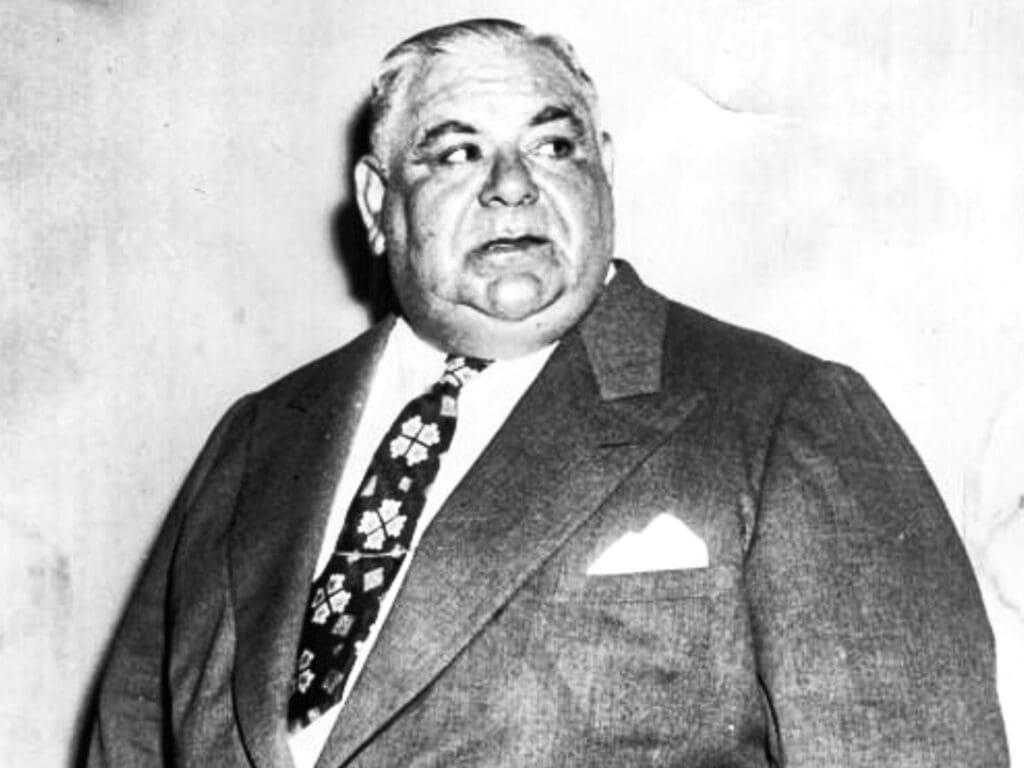
“I understand Lias was able to buy off some of the police during his heydays here in Wheeling, but never Harry Hamm. I’m sure there were offers made, but no one I’ve ever worked with had ever heard of Harry Hamm ever taking a dime in exchange for looking the other way,” explained Bill Kolibash, an Army prosecutor who joined the U.S. Attorney’s Office in Wheeling in 1973 once discharged. “I didn’t have a lot of interaction with Hary Hamm, but his reporters were always prepared to get what he wanted for the next day’s newspaper.
“There was the TV news back then, but newspapers were more important because it was all in print. It was the news everyone paid attention to, and Harry Hamm was in charge and everyone knew that. I’m sure it drove Lias, and then Hankish, pretty crazy that they couldn’t influence him,” he said. “There were plenty of differences between Lias and Hankish, sure, but they both wanted to control everything and everyone they could.
“Neither one of them got to Harry Hamm apparently.”
His dedication to THE job was one of a number of reasons why Hamm often was referred to as a “great newspaperman” during his acclaimed career. Those who knew him knew there could have been no greater compliment for the long-time editor even though he had served his country in the U.S. Army, fathered 12 children, and remained in love with his bride, Mary, up until his death in 1991.
Hamm, his middle son recalled, was proud to be a newspaperman.
He was promoted to city editor in 1948, then to managing editor in 1951, editor in 1956, and editor-in-chief of Ogden Newspapers in 1968. Residents had a morning and an evening newspaper to read during Hamm’s career, and according to the biography on the Ohio County Public Library’s website, “Hamm championed causes such as quality education and health care, crime control, bridge construction, urban renewal, good government, and more.” He was inducted into Wheeling’s Hall of Fame in 2000.
“I remember a lot of cautiousness because of the visitors my dad had, and also because of how he approached the coverage when it came to organized crime,” Chris said. “There was a lot going on back in those days, so there was a lot of news connected to Lias and organized crime. Some people didn’t want that news in the newspaper.
“We lived in a great neighborhood and there were probably 40 kids of all ages running around at all times. Everyone had each other’s back and the parents did, too. That was great. And everyone knew where Harry Hamm lived, too, and that included Lias and his guys.”
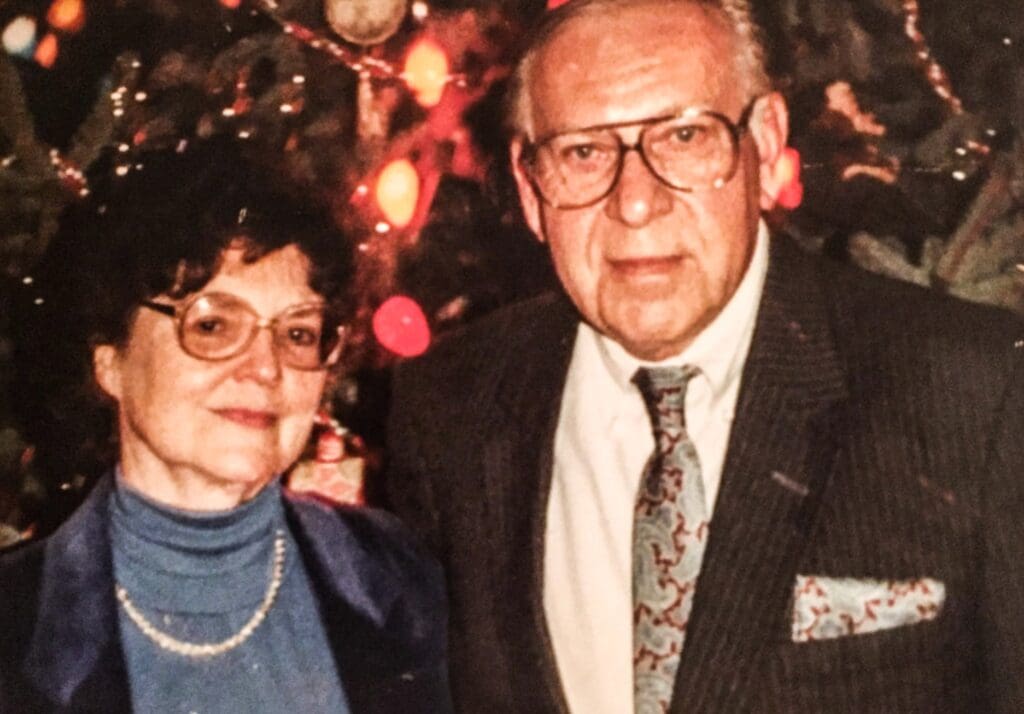
Seven Sons. Five Daughters.
The executive editor reported to his downtown office six, sometimes seven days a week, and his office was in a smoky newsroom filled with clacking typewriters and competing reporters from both the morning Intelligencer and the evening News-Register. There were deadlines, breaking news, and printing presses at 1500 Main Street, and Hamm went in early, stayed late, and he always got the story.
Harry and Mary were also proud parents, welcoming Marilyn, Herk, Denny, Heather, John, Chris, K.C., Bobby, Matt, Greg, Gretchen, and Jamie in 20 years between 1947 and 1967. Marilyn was first, Jamie was last, and Chris is smack dab in the middle, now at the age of 67.
“There was always a crowd at home, that’s for sure” he remembered with a grin. “I don’t think we all live at home at once, but there were times when we were all home for the holidays and things like that. My mother loved when we would all get together, but Pop was usually busy with something.
“There was a lot going on in Wheeling back in those days and there was no end in sight,” he said “Not back when I was a kid anyway. A little later when we started losing jobs, he started working on those issues, too, because of the politics involved. Pop was all about the politics.”
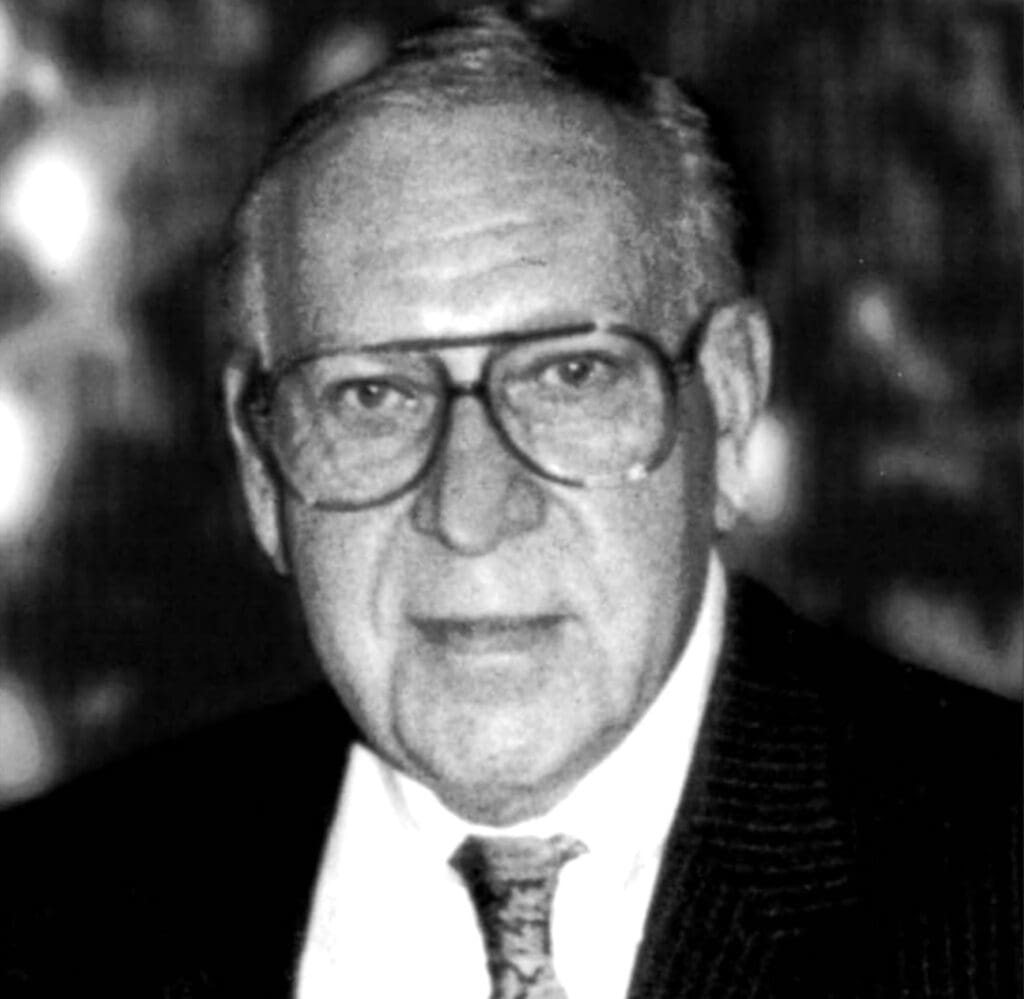
The Hamm home rested just off of Bethany Pike, the roadway that guides thousands to a municipal park known as Oglebay, a hilltop oasis where most of the Hamm children worked at some point in their lives. There were alleys near the house, including a well-hidden cindered path directly behind the Hamm family’s backyard.
That’s where an unexpected visitor likely parked before paying a visit to the Hamm family.
“I just remember that someone walked into our house because we never locked our doors back then. But that guy got a surprise,” Hamm recalled. “That guy probably didn’t expect a family the size of ours, and he was surprised that some of the family chased him out and down our alley. We never saw him again.
“There were so many threats against my dad because of his stance against organized crime, and the sheriff of Ohio County literally lived right across the street from us. He thought we should use clear tape on our hoods of our cars out of precaution. You know, in case someone wanted to tamper with our engines,” he said. “I remember things like that from when I was a kid.”
Chris may make jokes about the incident today, but no one was amused at the time.
“There were reasons for us to be worried because we always saw deputies and police cruisers patrolling the alleys around the house, and I know my dad’s friends in Washington, D.C. made the FBI director (J. Edgar Hoover) aware of the threats,” Hamm explained. “That’s when Hoover sent the letter to let everyone know the FBI was watching.
“There were phone calls when no one would say something on the other end, and people riding back and forth past our house all day,” he said. “There were a lot of us so there was always someone home back in those days. We saw them.”
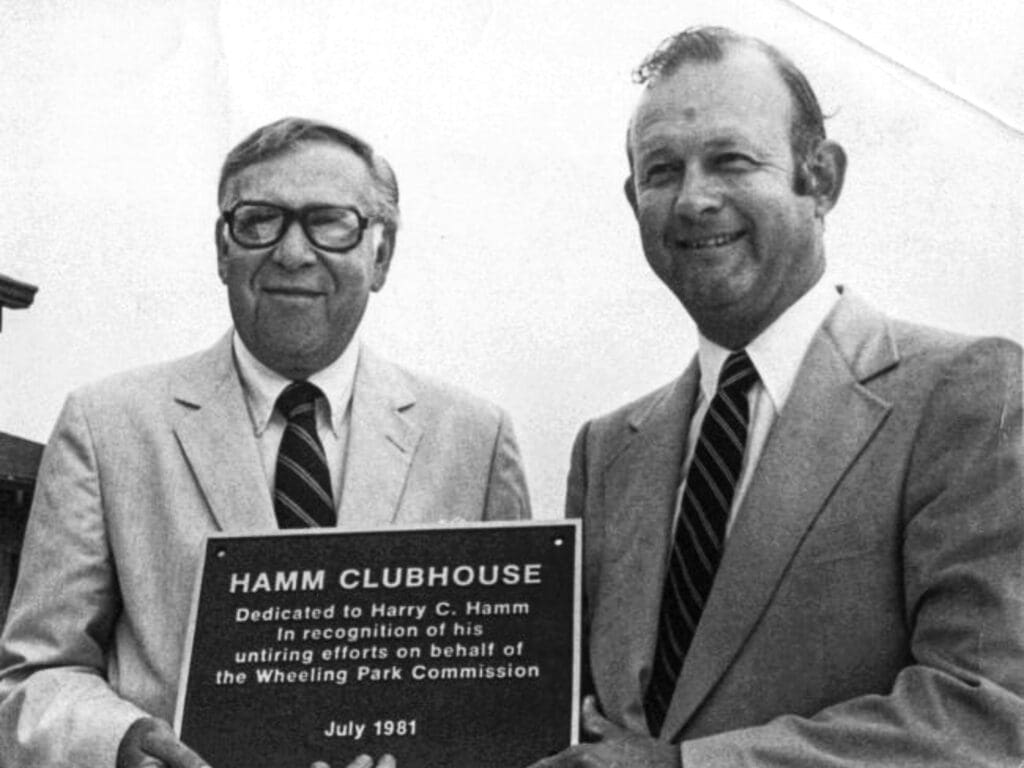
Big Brother ‘Herk’
Technically, older brother “Herk” – the second of the 12 children – was named after his father (Harry Jr.) as the oldest boy in the Hamm clan, and at the time Mary passed on October 18, 2017, there were 26 grandchildren and 17 great-grandchildren in the bunch.
Herk, who now resides in the Pittsburgh area with his wife Jeanie, recalled the evening when his mother asked him to impersonate his father’s deep, raspy voice.
“One night when Pop had gone to Washington to get some money from Byrd for Oglebay, Mom came into my bedroom after midnight and made me get out of bed because Lias was on the phone. She said I had to pretend to be my dad. So, in my deepest voice, I said, ‘Hello. What do you want?’
“Lias asked, ‘Is this Hamm?’ and he only called dad, ‘Hamm.’ I answered ‘Yes,’ but I didn’t hear anything back from Lias. He wasn’t convinced and simply hung up.”
Herk heard later why the mobster called.
“I learned after Pop returned from his trip (and) Lias had called him the next day at the newspaper office and told (him) that his daughter had been arrested for (driving drunk) and he did not want the report in the newspaper. Pop told him that if it was on the police blotter it was public record and would be in the newspaper.
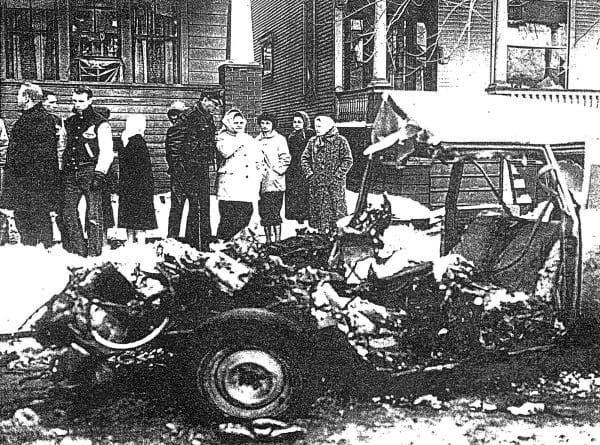
“I understand it was (on the blotter), and it ran in the paper.”
A plethora of so-called “unsolved crimes” from the 1950s and 1960s involved bombings of homes and taverns all over the city, and Kolibash believes there were no clues because no one offered any.
“Most of the time, the victims didn’t even talk because they didn’t want more trouble,” the former U.S. Attorney said. “They just got the message and stopped the behavior.”
Fortunately, Lias may have harassed Hamm, but the mob boss did not order an execution.
“When Pop was testifying before congressional anti-crime committees, he and my mother received many phone calls warning or threatening action against the family if he did not stop his anti-crime campaign,” Herk said. “Such as ‘Do you know where your kids are. All of them?’
“Pop got some support from Ralph LePore, the Ohio County Sheriff and a former FBI agent,” he reported. “Ralph insisted that the calls were warnings (and) should not be ignored. He said those in organized crime knew that harming a member of the media would create more public focus than they wanted but that the local crime members had used car bombs as a last resort to send a terrifying message to those who would jeopardize their illegal activities.
“Paul Hankish found that to be true when he started his car and lost both legs in the blast.”
Hankish, though, didn’t change his ways. Obviously.
“Once that bombing took place, there wasn’t a person in this town who didn’t know Hankish’s name because everyone knew he survived somehow,” Chris recalled. “But he was still a criminal as far as the law was concerned, and as far as my Pop was concerned, too.”

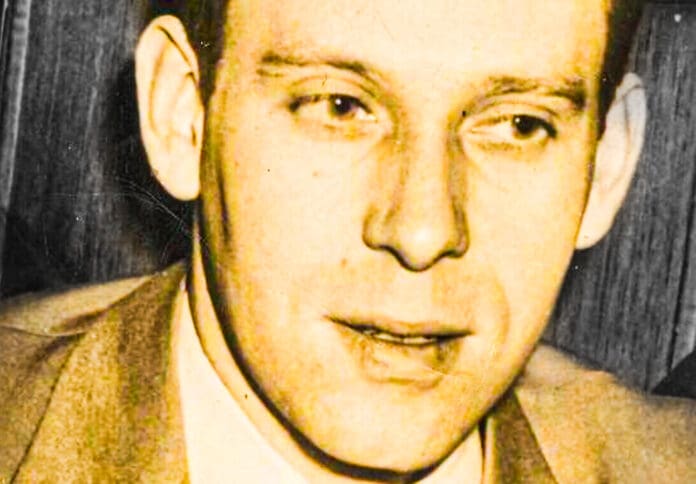

Interesting to learn the history of organized crime in Wheeling. Glad that Harry Hamm survived the mobsters’ wrath. Unfortunately, in Canton Ohio, newspaper editor Don Mellet was not as fortunate. He met his end at the hands of the mob when he railed against the mob’s activities and the corrupt city administration ….
Thanks, Ken. Glad you are enjoying the series. There were plenty of death down here and you’ll be reading about it in the future. But yes, thank goodness Harry survived his stance.
I grew up on the Ohio side 50s and 60s left for the navy in 1970 moved to Florida after getting out of thee Navy. I love reading about the valley and what went on back then. Loved the book Murder Never Dies. Enjoyed reading your stories. Thanks for sharing.